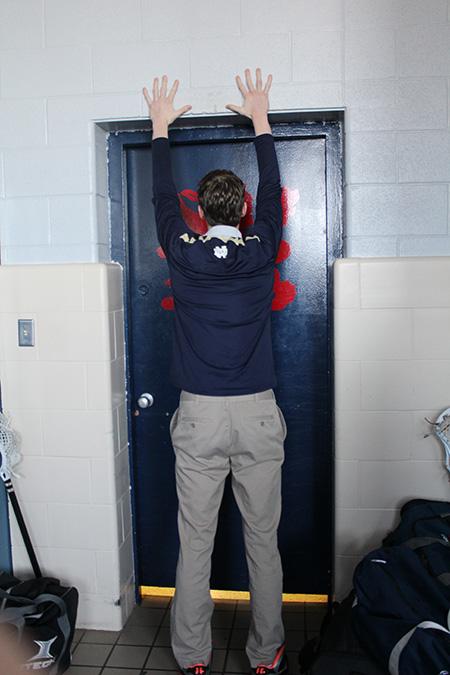Luck of the Lions
Superstitions help to keep athletes sane.
From always wearing a pair of lucky socks to eating the same pregame meal, various superstitions have become a prominent aspect of today’s sporting world. These traditions may seem silly or unimportant to outsiders, yet for the athletes that practice them, they provide a sense of normality and control before they compete.
This notion is not simply a proposition of athletes that have pregame traditions, though. In fact, psychological experts support the assertion, explaining that an athlete’s superstitions aid both their mindset and physical performance during a game.
One such example is sports psychologist Gregg Steinberg of Austin Peay State University. In an interview with CNN, Steinberg expressed the impact of sporting traditions on the mentality of athletes.
“Athlete never know how they’re going to play or how the other team is going to play,” said Steinberg. “So when you do something that’s superstitious, like wearing a trinket, it gives you a greater sense of control.”
Furthermore, a Psychological Science article concerning superstitions analyzed a study at the University of Cologne that tested the impact of rituals on athletic performance.
“Participants who had a lucky charm demonstrated improved performance in golfing, motor dexterity, memory and anagram games” said Lysander Damisch of Psychological Science. “Being in the presence, versus the absence, of a personal lucky charm leads to improved performance by boosting people’s belief in their ability to master a task or self-efficacy. The boost in self-efficacy from a lucky charm in turn leads to higher self-set goals and increased persistence, which both further improve performance.”
Psychologist Dr. Richard Lustberg expands upon this aspect of sports psychology on his personal website.
“If a player has success in sports, it’s more likely because of practice and skill,” said Lustberg. “But if the player attributes his or her success to some type of different act, such as wearing a certain article of clothing or repeating some kind of routine, the player will repeat the act. As a result, the player’s confidence will rise, and this increased confidence allows the player to perform at a higher level.”
Many prominent and successful athletes, including basketball stars Michael Jordan and Jason Terry, have practiced superstitions throughout their athletic careers. Wesley Mayberry of Psychology of Sports elaborates on these seemingly fickle superstitions that the two athletes felt improved their game.
First off, Michael Jordan’s tradition regarding his basketball shorts lasted through his entire Chicago Bulls career. This tradition also kickstarted the modern trend to wear long basketball shorts, as he had to wear long Bulls shorts in order to cover his UNC shorts underneath.
“During every game he played for the Chicago Bulls, Jordan wore his University of North Carolina shorts under his uniform, which he believed brought him luck after he led UNC to the NCAA championship in 1982,” said Mayberry.
Additionally, Jason Terry is one of the most superstitious athletes to date. The night before every game, he wears the shorts of the opposing team to bed; also, he must eat chicken before every game, and he wears five pairs of socks during a game. In the one college game that he did not wear five pairs of socks, he did not score any points.
Superstitions are not only limited to collegiate and professional athletes, however; they can be a large aspect of high school athletics as well. Saint Viator is no exception, and each team handles traditions and superstitions differently.
One example is the Viator football team, led by head coach Dave Archibald, which differentiates between superstitions and traditions within their team culture.
“I think superstitions and traditions are different things,” said Coach Archibald. “We do not have any superstitions on the football team, meaning that we don’t believe that any routine actions we choose have a type of supernatural or cosmic impact. Traditions like our weekly or game-day schedule, how we warm up and singing the fight song after games are good for both focus and community spirit, though.”
Coach Archibald also presents an interesting spin on personal superstitions by explaining that he does not want traditions to distract an athlete from a focus on the team as a whole.
“Individual players also have their own routines and traditions to help them focus and prepare for games or practices,” said Coach Archibald. “Those are acceptable as long as they are consistent with the culture of our team and do not distract from a team-centered mentality.”
All in all, superstitions have a wide range of effects on athletics. Although they can contain both positive and negative aspects, it’s certain that they have a much more meaningful impact on the sporting world than meets the eye.



